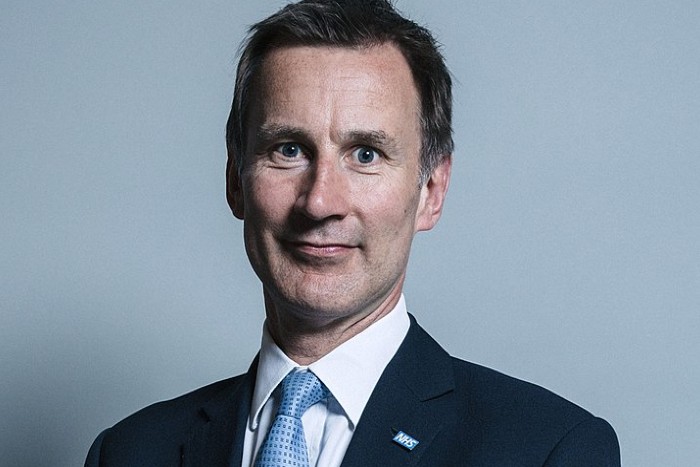Chancellor Jeremy Hunt delivered what he termed a “Budget for growth” today, which he said would provide support for people amid the cost-of-living crisis, bring down inflation and providing a pathway for economic growth.
Retail Gazette looks at what the Spring Budget means for retailers.
Energy price guarantee
Hunt confirmed he is delaying the increase in the energy price guarantee for the next three months, so average household bills will stay capped at around £2,500 a year, rather than increasing to £3,000 as planned.
Through the guarantee, the government essentially makes up the difference between what households are paying and the cost of buying energy from wholesale markets.
With soaring energy costs one of the biggest pressures on household budgets right now, this could help free up some disposable income that could boost retail spending.
The Retail Trust CEO Chris Brook-Carter said the initiative should go some way to reassuring anyone worrying about rising energy bills.
He said: “We’re seeing a growing number of retail workers applying for financial aid from the Retail Trust or visiting our website to access financial health support, so we understand the pressures that millions of working people are facing right now when it comes to dealing with these kinds of costs.”
Free childcare for under 3s
The government is to expand free childcare for working parents to all children over nine months by September 2025 as the Chancellor looks to get more parents back to work.
The move could allow 60,000 more parents of young children to enter the workforce, according to the government’s independent forecaster.
Working parents of two-year-olds will get 15 hours of free care from April 2024, which will be rolled out to children from nine months by September 2024.
By September 2025, all eligible under-5s will get 30 hours free childcare from September 2025
With UK childcare costs amongst the highest in the world, the move could help get parents back to work.
With the retail sector the UK’s biggest employer, this could help boost the sector’s talent pool.
Another iniative designed to get people back into work is the “returnerships”, a new kind of apprenticeship targeted at the over 50s.
They will operate alongside skills boot camps and sector-based work academies and are designed to be more appealing to older workers, focussing on flexibility and previous experience to reduce training length.
Corporation tax increased, but IT spend becomes deductible
Corporation tax will be increased from 19% to 25% from April, however, Hunt insisted that only 10% of businesses will pay the full rate.
The Chancellor also revealed that every pound spent on IT, plant and machinery can be deducted full value from taxable profits for the next three years.
This will equate to a corporation tax cut worth £9bn a year. The OBR predicts the initiative will increase business investment by 3% each year.
Helping to drive artificial intelligence development
The government will launch a new “AI sandbox” to trial faster approaches to help innovators getting cutting-edge products to market
It will also work with the Intellectual Property Office to provide clarity on IP rules so generative AI companies can access the materials they need.
Hunt also vowed to commit £900m of funding to implement “exascale computer”, recommended in DSIT’s recent Independent Review of the Future of Compute.
Meanwhile, a £2.5bn pot will be made available for researchers and academics in quantum computing to help improve the country’s competitiveness in the field.
A new AI prize, dubbed the “Manchester Prize”, where “the person or team that does the most groundbreaking AI research” will receive a £1m award has also been launched and will run for the next 10 years.
Beer to be cheaper in pubs – but cost more in supermarkets
From August, alcohol duty rates will rise 10.1% in line with the Retail Price Index, but pubs will be shielded from the impact of this.
A ‘Brexit Pubs Guarantee’ will ensure that draught beer in pubs will be 11p cheaper than beer in supermarkets.
It is hoped that this will support the struggling hospitality sector with pubs and restaurants set to benefit.
What was missing?
Although the government’s announcements provide some relief, industry experts have criticised the initiatives for not providing enough.
New West End Company CEO Dee Corsi said the Chancellor “missed an opportunity” to look again at Sunday trading hours and help “address some of the damage” done by his introduction of VAT on spending by international visitors.
“The recovery of the West End has been remarkable but continues to lag other global shopping destinations with less restrictive trading hours such as Dubai, New York, Milan, and even Paris where they have liberalised trading hours in certain tourist hotspots,” Corsi said.
“The West End is 65% busier on Sundays in terms of footfall, as well as spend per trading hour, so extending shopping hours would be a practical and cost-free way of generating an additional third of a billion of net additional sales that the UK currently misses out on.”
Meanwhile, although BRC chief executive Helen Dickinson acknowledged that the Chancellor understood the need to train people to re-enter the workforce, she said he missed a key opportunity to fix the issues with the Apprenticeship Levy system that would support that goal.
“Over the last three years, businesses have lost £3.5bn in unused Levy funds. To break this cycle of wasted investment, it is vital that government allows businesses to use their hard-earned Levy funds for a wider array of skills courses.
“Without spending a penny, the Chancellor would increase investment in our workforce, helping businesses to prepare the UK economy for the skills it needs,” she said.
Dickinson also flagged the need for more reform to the business rates system.
“The broken business rates system remains a drag on business investment, jobs, and economic growth. Rates must be paid in full whether firms are making a profit or a loss.
“This makes Business Rates the final nail in the coffin for many struggling stores; shutting shops, costing jobs and preventing new stores openings.”

















